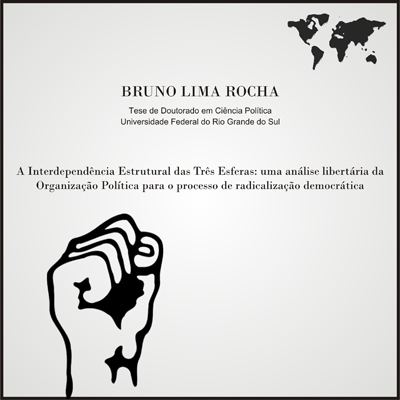|
ISSN 0033-1983
.jpg)




















|
|
Original Content in English
In Rio de Janeiro, the order shock doesn’t guarantee the full citizenship
|
globo

Another body loaded of the slum to the no-one cemetery
|
August 24, 2009 , by Bruno Lima Rocha
The fall of the helicopter, in a Saturday, October 16, fruit of the attack executed by drug dealers in the slum (favela) called Morro dos Macacos (Monkey’s Hill), in Vila Isabel, north zone of Rio de Janeiro, is not an exception to the daily urban wild capitalist war shared for cariocas (those who live in the state capitol) and fluminenses (citizens from the metropolitan area and state interior). Rio and its Metropolitan Area day by day they survive and live together with more than 700 favelas, materializing in a no-government geographical spaces where the State get into after negotiating or while the polices (military and civil) starts shooting! For collective despair, the situation becomes worse and worse since 1983!
I understand that this is the root of all public order problems in the “Wonderful City” (Cidade Maravilhosa). enviar
imprimir A lack of proper authority
José Mariano Beltrame is a Federal Police (PF) chief and current Rio state secretary for public order. Correctly, as orders the manual, he wants to recover the state sovereignty on stains of urban territory. The problem is of legitimacy. I explain. If a slum resident dials the number 190 (police emergency, like 911 in US) and asks to police aid policeman for physical integrity, it is almost impossible that a vehicle goes up the hill to help a family. At the same time, in the beaches, south zone area the most expensive urban area in Brasil, the presence of ostensible policing is superior then what UN recommends. It is simple, two weights and two measures for those who, literally, live side by side.
When the State doesn’t recognize the citizenship of more than 2 million people, it doesn’t have any condition of acting as repressor. The police forces physical presence should be accompanied obligatorily, or at least preceded, of an uncommon effort to integrate these areas to the city. It is not what happens. Brazilian governments take only palliative measures and pyrotechnic decisions. To retake State sovereignty would implicate in a huge investment, like Marshall Plan, before the Olympics 2016. It implicates in ostensible and permanent policing (and no military police war occupation), basic sanitation and wide offer of fundamental public services; beggining with public health service, including the always problematic ambulances assistance for emergencies.
If the favela’s residents are not entitled to a significant part of their citizenship, they will not recognize any legitimacy in administrations that do few things or even do nothing about providing their basic rights. With that argument I don’t affirm to be preferable the dealers gangs territorial control and even is less preferable the tyranny provided from paramilitaries forces (composed with policemen, fire fighters, correctional policemen and private security agents) sponsored by the powers that be. Those officer’s gangs do have the nickname of ‘militia’, disgracing the name of people in arms during Spanish Civil War. I emphasize another point of view. If the drug dealers’ violence was summarized to the slum areas, the governments of Rio and their elites would live together without any problem with that absurdity. That opinion is not mine, but comes from of Hélio Luz, an honest civil police chief and former State public order undersecretary, with whom I modestly agree.
Still struggling for basic rights of the citizenship
To assure the full citizenship in the communities implicates in billions of dollars in investment and regular structural politics. Unhappily, the residents should not wait for anything in that sense from any kind of rulers. There is other condition. In the history of the liberal democracy, the fundamental rights are fruit of conquests and not of concessions. Or forces the State to assume its obligation the State, or cariocas and fluminenses will have more dropped helicopters following by more than a thousand of citizens murdered annually

voltar
|
 |
|
|
|


.jpg)


















.jpg)















